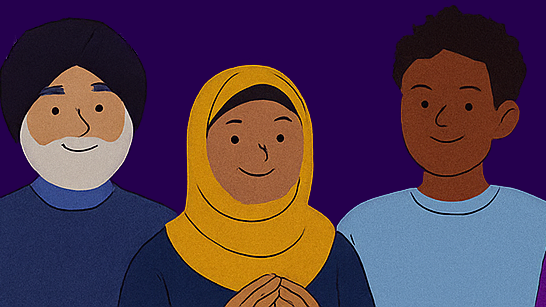Breaking Down Walls, Confronting Hate: From Segregation to Safety in Scotland
Part of the CERD Awareness Series
1. Why These Articles Matter
Articles 3 and 4 of the International Convention on the Elimination of All Forms of Racial Discrimination (CERD) are inseparable pillars in the fight against racism. They demand that states:
- Eliminate all forms of racial segregation.
- Take firm action against racist propaganda and organisations that incite hatred and hostility.
For Scotland, these articles are deeply relevant. They go beyond legal obligation; they speak to the lived reality of ethnic minority communities navigating both structural barriers and the rising tide of hate and division.
2. Scotland’s Reality
While Scotland does not legally enforce segregation, its effects can still be felt:
Housing: Ethnic minority families are more likely to be concentrated in deprived neighbourhoods.
Education: Pupils from minority backgrounds face bullying and racial stereotyping that undermine achievement.
Public life: Representation of minority voices remains limited in decision-making spaces.
Alongside this, hate crimes are increasing- offline in streets and schools, and online through disinformation and targeted abuse. The Hate Crime and Public Order (Scotland) Act 2021 is a landmark step forward, but the lived experiences of many show that enforcement and protection still fall short.
3. Lived Experiences
These challenges are not abstract they affect real people every day:
- Malik, a father in Glasgow, found his family repeatedly allocated housing in marginalised areas. He worries that his children’s opportunities will be limited not by ability, but by postcode.
- Fatima, a Scottish Muslim woman, endured online racial abuse that escalated into harassment on the street. Though she reported it, the response left her feeling unprotected and unheard.
Such stories remind us why CERD’s call to end segregation and combat hate remains urgent for Scotland today.
4. Progress and Gaps
Scotland has made encouraging strides:
- Strong anti-hate legislation and equality protections.
- School-based programmes to challenge prejudice and promote inclusion.
- Community cohesion initiatives led by civil society and government partnerships.
But challenges remain:
- Ethnic minorities continue to experience higher rates of poverty and housing insecurity.
- Far-right rhetoric and disinformation threaten social cohesion.
- Underreporting of hate crime shows gaps in trust and access to justice.
5. From Commitment to Action
Articles 3 and 4 remind us that a fairer society cannot be passive, it requires intentional, sustained action. For Scotland, this means:
- Ensuring housing, education, and employment systems do not perpetuate invisible segregation.
- Holding institutions accountable for enforcing anti-hate laws effectively.
- Building robust support systems for victims of hate crime.
- Promoting representation and participation so that ethnic minority communities shape the Scotland of tomorrow.
At BEMIS Scotland, we see these articles as tools of empowerment. They provide not just obligations for the state, but also leverage for communities to demand safety, equality, and inclusion.
Reflection Point
💭 Do we want a Scotland where divisions deepen and hate takes root, or a Scotland where every community belongs, thrives, and feels safe?
The choice lies with all of us- governments, institutions, communities, and individuals alike.
⚖️ CERD in Scotland: From Commitment to Action
#CERDScotland #FromCommitmentToAction #EliminatingRacism #HumanRightsScotland #EqualityForAll #BEMISScotland

